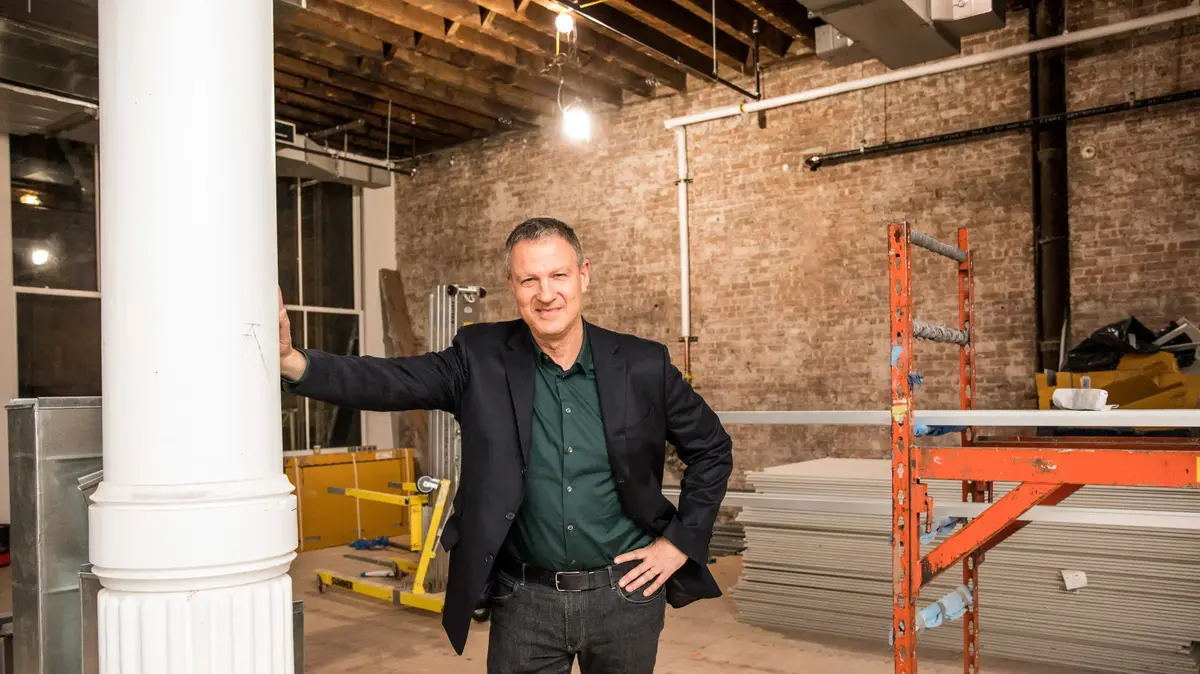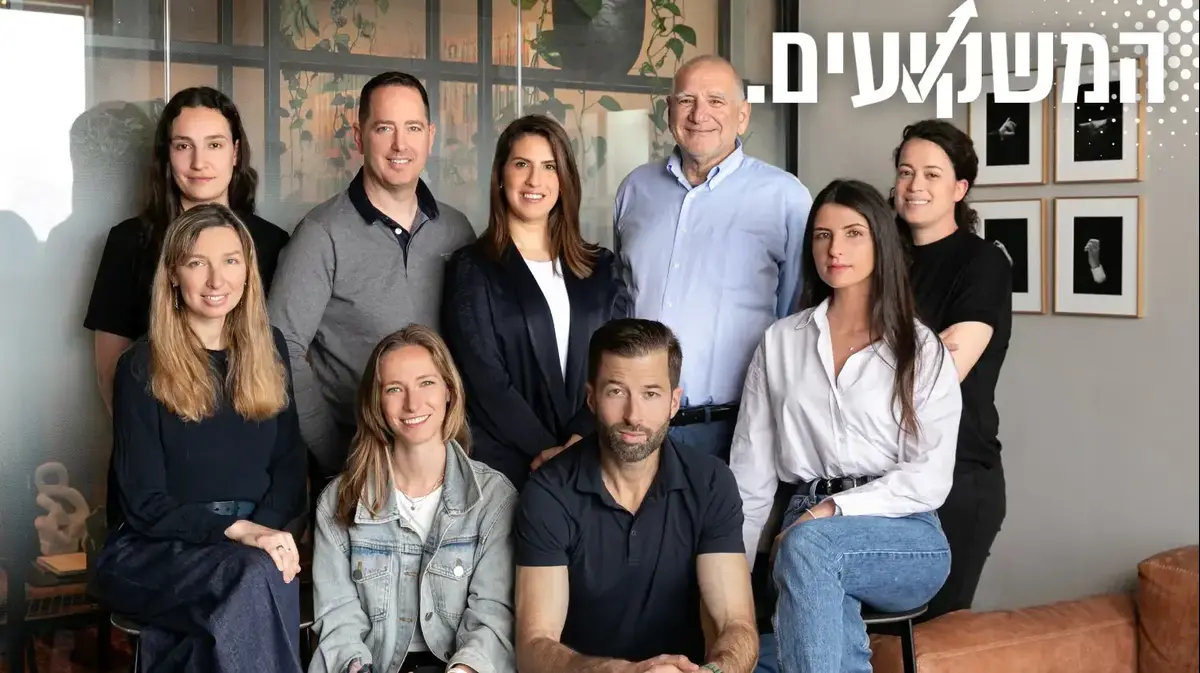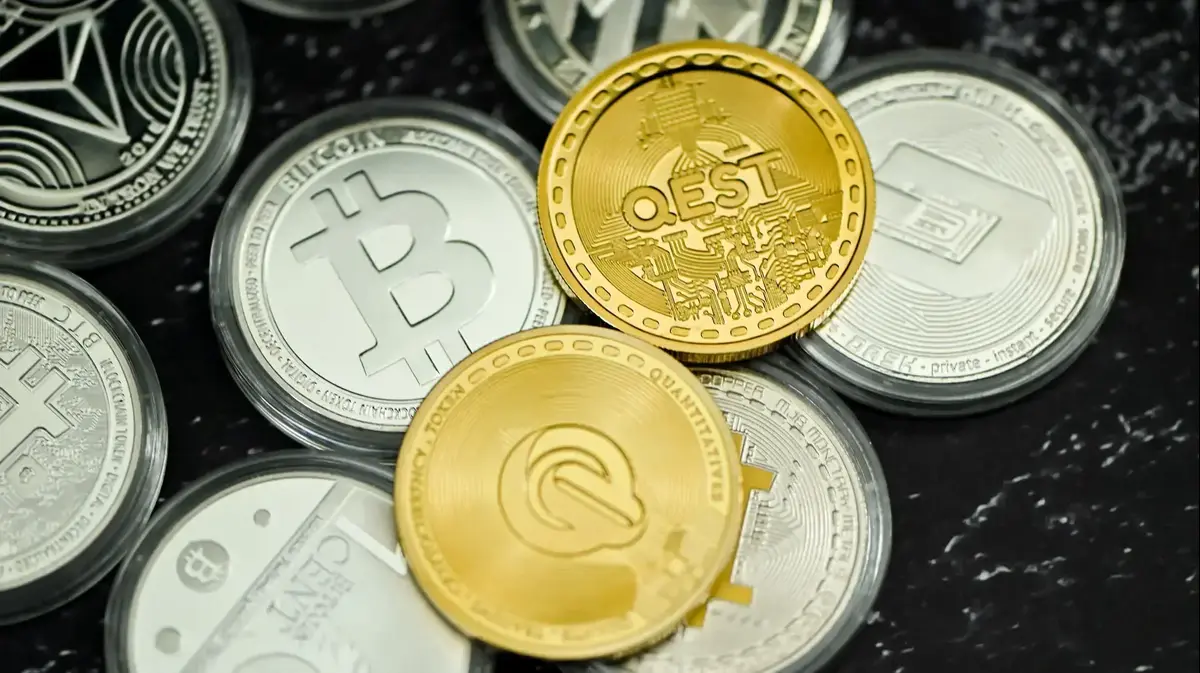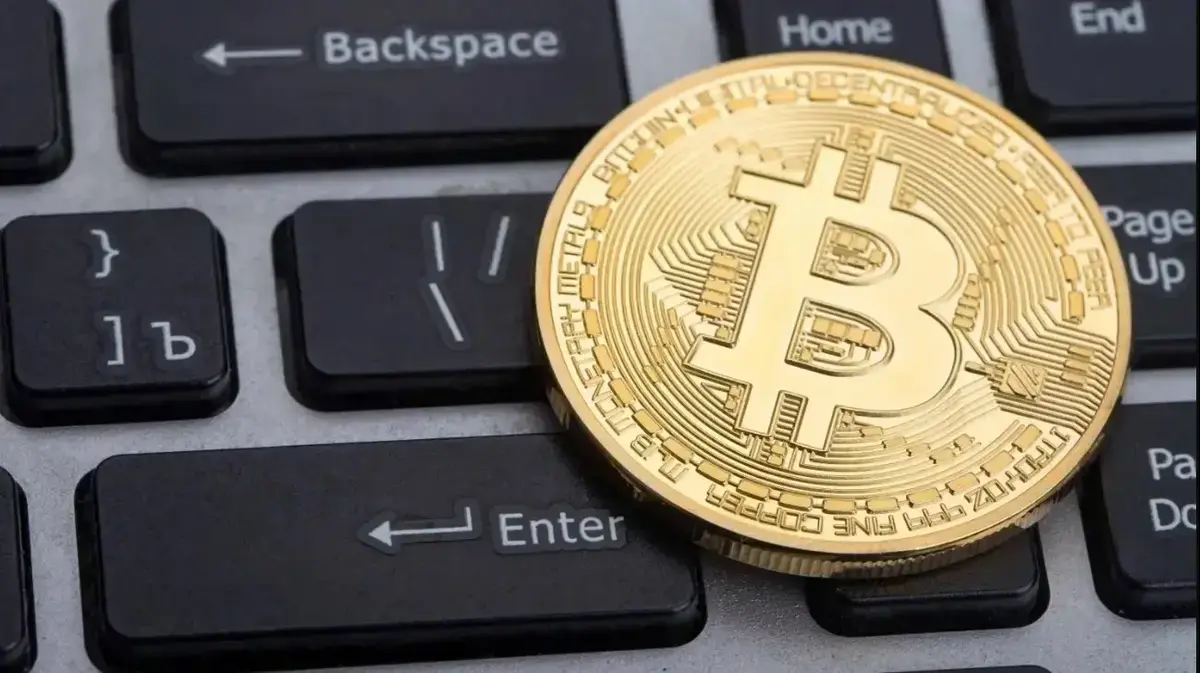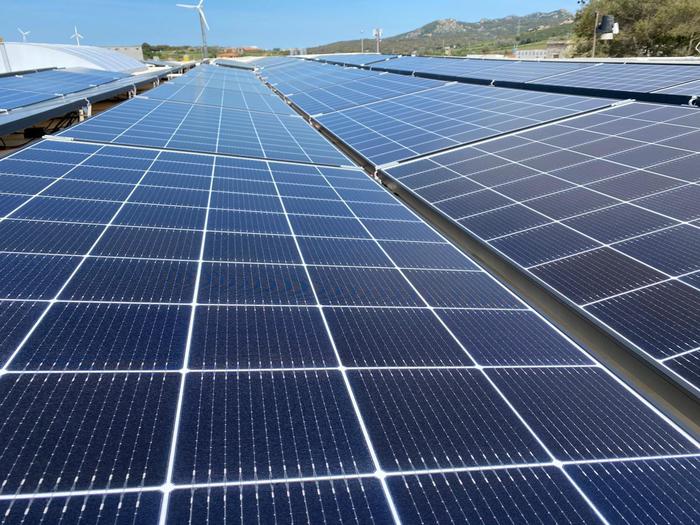Arel Margalit at the opening of the ClimateTech Center in New York.
Cooperation, among others with MINI from BMW (Photo: Shahar Ezran)
It happened last September, the leading Israeli entrepreneur Arel Margalit launched in downtown New York what is known as the Start Up City, the Climate Tech Center (or Climate-Tech) two years after the launch of the Cyber Center that was launched just before the Corona outbreak.
The idea behind Start Up City was the establishment of a ClimateTech Center that Margalit calls the next hot thing in the investment world, with a center in New York that serves as the parent and accelerator for Israeli, European and American start-up companies in a New York incubator, and perhaps if you like - the Big Apple's answer to the well-known startup kingdom in Silicon Valley .
That launch was covered here in September, but it is doubtful that even Margalit, the man who is good at predicting the heartbeats of potential investors, expected the success to be so quick - and in terms of the business world, even immediate, because Margalit Start Up City in New York, currently includes about 38 companies that are developing All of them are at a fast pace on their way to becoming market leaders at an international level.
The ClimateTech Center is the first collaboration of its kind in the world between Margalit's venture capital fund and its partners, JVP and MINI from the BMW Group, the City of New York and Columbia University.
The initiative leads a new holistic approach to the field of climate tech, which deals with a variety of fields under one umbrella - technologies such as cyber, fintech, insurtech, foodtech, and agtech are all mobilized as part of the aid to the climate crisis, alongside renewable energies and mobility, and sometimes even complement each other, when a transportation solution joins the idea From the field of recycling, uses fintech services and more, meaning - the work is not only from the center outward, but also between the different rooms that share the same space.
Besides the German car manufacturer, the center is the first collaboration of its kind in the world between Margalit's venture capital fund and its partners, JVP - and the City of New York and Columbia University (Photo: Shahar Ezran)
Public discourse
"The process we started in New York is gaining a lot of momentum," says Margalit, chairman and founder of JVP and Margalit Startup City, almost four months after the festive launch. "There are very interesting projects and fascinating collaborations between Israelis, Europeans and Americans in the pipeline.
There is no doubt that
Klimtech, in the broadest sense of the word, is absolutely going to be the leading investment category within three years and almost everyone is going to find their own way to get involved in the field."
The required warnings, but nevertheless - and without asking anyone to invest not according to his understanding or the professional advice he will receive, Margalit marks here, with his characteristic self-confidence, the field to which not only he directs the most efforts, but the one to which quite a few entities will direct their investments Within three years. Interesting.
JVP's investment team met many of the entrepreneurs, some of whom are in the process of investment consideration.
Alongside this, the news that came out of New York and Jerusalem has become an international process and strategic collaborations are being built with major European cities in order to locate the new issues and technologies that are going to save the world, invest in them and help them grow.
Margalit's idea is to connect Israel to an international circle leading the climatetech industry.
"I'm sure that in the end it will be stronger than cyber, not because we are technologically better at it than cyber, but because the story of the climate tech becomes the talk of the street, and not only among technologists."
Behind the father's idea, there was a hypothesis that additional disciplines from Israeli high-tech should be introduced into the growing climate-tech world, as part of a paradigm shift to more effectively deal with the climate crisis.
Through the new center, a call was sent to Israeli entrepreneurs - and of course not only to them - to submit start-ups on various topics with a Climate Tech orientation.
"In the beginning, we received very preliminary start-ups and companies with interesting proposals," says Margalit, and says that since then several proposals have been received to establish a parent similar to the one in New York, also from various places in Europe, with an emphasis on Scandinavian countries.
"They want Israelis, and they want what we did in New York, to be done in them as well."
What is interesting about climtech is that it is not just one discipline
"I'm learning a lot, it's about several disciplines. Suddenly you have architects who specialize in design that imitates nature, for example. They're talking about a sustainable economy. I met a very old 80-year-old architect in Denmark, who talks about the space between the buildings, what modernism did on an architectural level, and about the need to return the The city for pedestrians, to look at the people in the space. Sustainability is something between people and the city, not between the car and the city. So when we think about sustainability, we say, let's think a little more broadly."
Here in Israel we have the best minds in start-up, but it seems that we are quite behind when it comes to environmental awareness and sustainability
"In Europe, everyone is talking about this issue. We are still a little ignorant. Many of the things they do as an administrative policy as a country, this is actually part of the idea for a start-up. When you get the opportunity to convert energy, with the help of solar collectors, get married with the electric company and get credit and also give to your neighbor , you did administration and you also built me a blueprint for an energy fintech company. We get a lot of ideas from all kinds of places and of course you find a lot of Israelis who are everywhere."
And how the current energy crisis is affecting the Europeans, on the one hand it intensifies the need to move to long-term solutions and alternative energy on the other hand, there are also many who say this is proof that we ran too fast, that we should have still maintained fuel production capabilities because at least we were warm in the winter ...
"In some countries in Europe, people are elected or not elected to parliament or to the prime ministership because of engaging and thinking about sustainability issues. So look how many times behind we are."
More in Walla!
B-Cure Laser - does it really help?
The truth is revealed
Served on behalf of B Cure Laser
Margalit with the partners for the launch of the ClimateTech Center in New York.
Which city will be the next to build a similar center? (Photo: Shahar Azran)
Partners in change
Until Israel also chooses candidates for the Knesset based on questions such as how committed they are to the climate issue and not how much they hate each other, I am trying to examine from Margalit's point of view one of the biggest paradoxes in the field.
The whole story of corporate responsibility is something that enters very strongly as a need for companies, but with a hand on the heart in the end who pollutes are not the big corporations?
"Precisely your biggest partners in change are those who have done the worst in the past, otherwise they will not survive. They reinvent themselves and have commitment. And what is our role? These guys do not know startups and within the organization itself they will not have the most advanced research, They won't necessarily bring the new invention. That's why you need to create the appropriate environment for the exchange of ideas to open them up to cooperation and change."
There is nothing like illustrating the cooperation between the various fields, under the umbrella of ClimateTech as an example of an idea that is already taking shape in reality.
One of many:
"Take for example the combination of fintech and climatetech. The idea - a company that shows you with every use of a credit card how green your operation is. Today, when you look at purchases, you realize that the data that exists is not sophisticated. If you run a sports store and someone buys from you, you want Knowing where the things were produced, how they were sent, and in the end you get general data. What Israeli companies know how to do is take this story, develop the data, improve the algorithm and create a new language that will meet exactly the need."
Also in terms of cyber, for example, it is possible and necessary to harness innovation in cyber to protect the climate.
how does it happen?
Hackers can damage not only security, but also the ability of populations and countries to cooperate in climate protection.
If cyber security can serve as a means to prevent damage to electoral systems or money laundering, it can also protect clean energy and air and water quality.
how?
This is exactly the theme that connects the various fields that are all covered under the roof of the center in New York.
The new wing in the center in New York.
It is doubtful whether even an optimist like Margalit expected that the expansion would be so fast (Photo: Ohad Kev)
the bread and butter
And not only in fintech, and cyber, but of course also in foodtech, one of the developing industries these days around the world.
Changing our food consumption is one of the most dramatic ways to save the planet.
And the way there begins with changing all known agricultural practices, such as: reducing the use of chemicals, smart and controlled irrigation, and providing data on climatic and micro-climatic changes to farmers for proper and optimal management of their resources.
"The food and agriculture category is as big as the energy category in terms of the effect on the planet, and if we manage to change food, with a joint effort within 7-10 years, it will be a huge contribution. The waste today is crazy, what we do today is unimaginable. Much of the protein we eat In the future, there will be no cows. Much of the agriculture that will be in the future will not serve the cows - and this will already save a lot. And the use of water: 95 percent of the world today irrigates with floods, but it is no longer possible to irrigate with floods even in Europe, which is rich in water, it simply does not work anymore."
You are talking about Europe and the USA and maybe Asia as well, is there cooperation with the Arab world as well?
"There is cooperation with the Emirates in two areas.
Companies there mainly sell cyber and fintech to the financial world.
The second field, food safety, is something that is progressing a little slower because it is a new field, but many more investment factors are showing interest in the subject.
From a regional point of view, it's good for us to go with food tech and agrotech and health, as something we cooperate with because it creates goodwill, and the story is clearer, even if we sell a lot more cyber products."
EU countries do not often adopt our narrative in the conflict. There are objections Your Israeliness?
"They ask me questions about what's going on. But in the end, the Europeans realize that they are part of the link between the regional cooperations here. The method with the Europeans is to show them their role in the connection, because they have a role. In the end, in Paris, you can meet all the partners from the Middle East. But There is no doubt that at the political level there are challenges that must be met and not everything is going to be simple."
Margalit tells about some things that cannot be detailed, except for the fact that when citizens from neighboring countries learn to know Israelis through ideas and not through militant ideology, the attitude changes wonderfully:
"People want the Israelis with the ideas," says Margalit, "and this field, which will be hot for investment in another two or three years, is already hot to talk about today, and this is the opportunity. What's nice is that although we are not there yet at the state level, and at the start-up level we are, but not exactly in the fields These, the connections with those who do understand the policy, where sustainability is the name of the game for him, alongside our technological ability - these are the things that together can create a huge change."
Facing Europe, and Europe is undoubtedly the most prepared continent for a sustainable transformation.
Is there a specific city that is going to be a sustainability center for example?
"It's not going to happen in one country, it will be a combination of several centers, Israel, New York, Europe. Israel is the center, but we need the cultural wealth. We like to think of ourselves as having the ability to be inventive, and that's true, but in the end, people from Europe too Sometimes we see things we don't always see."
Of money
Tags
Arel Margalit
climate
New York

